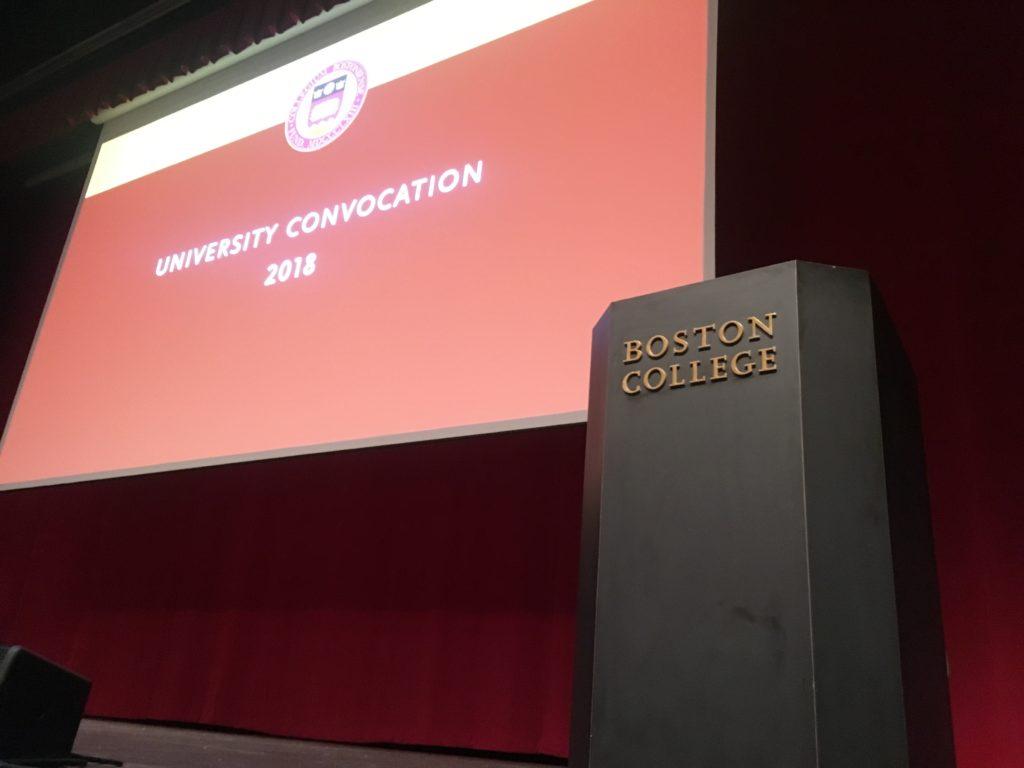University President Rev. William P. Leahy, S.J. spoke to Boston College’s faculty and staff Wednesday as part of University Convocation. In his speech, Leahy shared his thoughts on the University’s place in the world, and commented more specifically on the renewed revelations of sexual abuse in the Catholic Church.
Leahy committed to formulating a response similar to how the University faced in response to the sexual abuse scandal that gripped the Catholic Archdiocese of Boston in 2002.
Leahy’s speech addressed some of the problems facing higher education as a whole, including questions of affordability and reduced government support for colleges and universities. In the face of these issues, Leahy stressed the importance of frequent reflection and analysis in the context of a fast-paced society. He also briefly acknowledged some of the topics that have been raised by the student body in the past several years.
“Boston College has responded well to various challenges and opportunities, particularly because of its regular cycles of institutional assessment and change,” Leahy said. “We know too that we have to be ready for responding to campus tensions, whether they’re about race, sexual misconduct, free speech, a range of issues.”
He also addressed BC’s identity as a prominent Jesuit university in light of the recent Pennsylvania grand jury report that implicated over 300 priests throughout six Catholic dioceses in sexual abuse allegations. Between the dioceses, 1,000 child victims have been identified. Pope Francis later released a letter condemning the abuse and the years of cover-ups. In response to the Pope’s public comments, Superior General Arturo Sosa, S.J., the leader of the Society of Jesus, called on Jesuits to spearhead initiatives that would promote healing, protection, and support for minors.
“Within the Catholic subset of colleges and universities, there are additional challenges that we, as a Catholic university, have to attend to,” Leahy said. “We know there is growing secularization in American culture and we also live in a time where there is an inadequate understanding and appreciation of the Catholic intellectual tradition.
He explained how the Church in the 21st Century (C21) initiative was started by BC in 2002 as a response to that year’s scandal. Originally envisioned as a two-year program that would help the Church grapple with moving forward and regaining trust, C21 became permanent in 2004.
“I believe a similar response is needed now regarding leadership and general management in the Church,” Leahy said. “And I think there are lessons for us in Catholic higher education to offer a wider church because of the way we work with a board of trustees. Our trustees have been so influential and helpful in Boston College’s stability. They are individuals who helped us with advice with their philanthropy and community engagement.
“All these are issues that require response,” he said. “And I think BC is well-positioned to get involved with these matters that touch sexual abuse but also about other matters that require attention.”
Featured Image by Jack Miller / Heights Editor



















